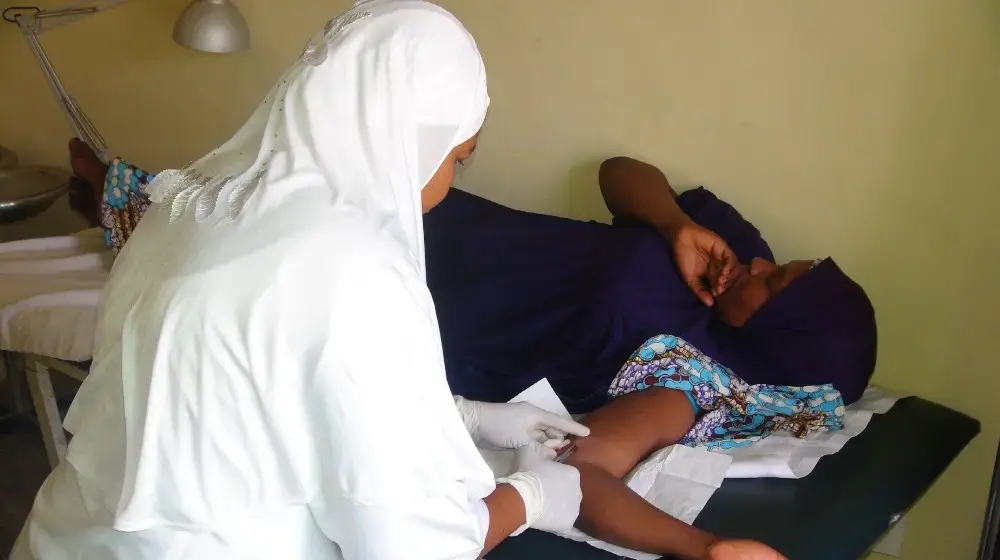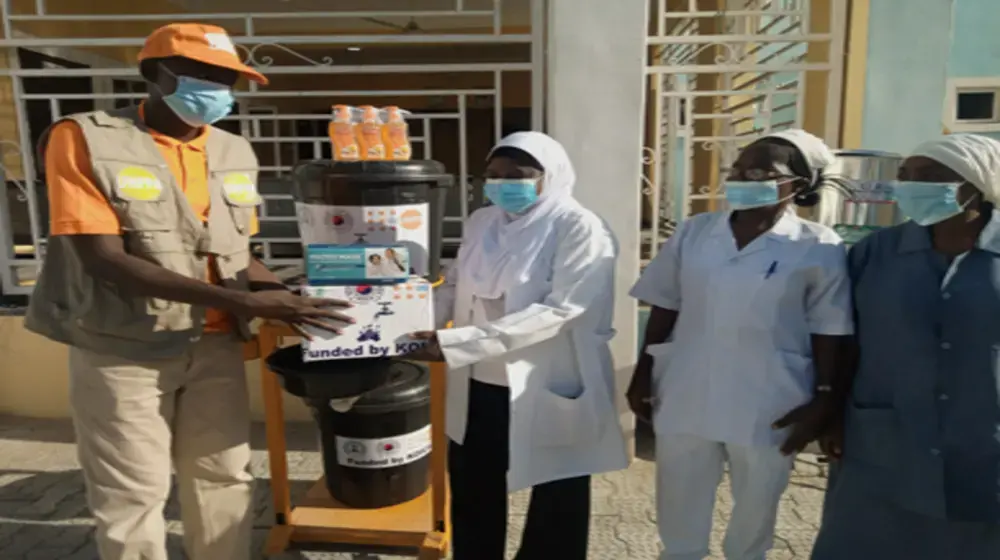Strengthening UNFPA’s Response to COVID-19 in the North East
The anticipated impact of the COVID-19 virus means the UNFPA team in Borno State, including its volunteers, have to respond quickly but safely during programming activities that promoting the sexual and reproductive rights of women and girls in the North East.
In a region witnessing protracted armed conflict, the decades-long hostilities have generated a significant increase in humanitarian, protection, and healthcare needs. In the January 2020 Humanitarian Situation Update (HSU), over 80 percent of the 1.8 million in need within the North-Eastern states of Borno, Adamawa, and Yobe are currently in Borno State.
This vulnerability of civilians coupled with attacks on humanitarian workers has recently been compounded by the global COVID-19 pandemic. Since the detection of the initial COVID-19 case in Nigeria, figures from the Nigeria Centre for Disease Control (NCDC) indicate that Borno has recorded 486 cases of infection. A breakdown of the numbers shows that there have been 32 deaths, 439 discharged and 36 still on admission.
The period of the pandemic makes existing inequalities for women and girls, and discrimination against other marginalized groups, worse.
As projected, an impending lockdown of activities in some states, signaled increasing requests for access to life-saving sexual and reproductive health services and kits. Being mindful that healthcare and reproductive services are severely impacted during pandemics, the team is operationalizing the UNFPA global response plan that focuses on preparedness, prevention, and response.
The priorities are to ensure uninterrupted access to reproductive services, and optimal adherence to sexual and reproductive health and rights during COVID-19. It aims for synergy with a previous work plan for strengthening the health sector to respond to key communicable diseases, detect outbreaks and attain the UNFPA’s three transformative results of zero unmet need for family planning, zero maternal mortality and an end to GBV and other harmful practices.
To mitigate disruptions to reproductive services during the COVID-19 pandemic, UNFPA and partners continue to rapidly support secondary health care services through streamlining and strengthening referral systems in Borno.
Planned activities include sustained capacity-building for healthcare workers that provide the reproductive needs of women and girls, and increased awareness on why they must have adequate protective kits during the pandemic.
With Gender-based violence (GBV) rising during the outbreak, there are ongoing engagements with religious, traditional, and community leaders. These tailored community interventions that leverage the influence of trusted personalities, will be supported with the provision of psychosocial support, sensitization, and availability of temporary safe shelters.
WHO (World Health Organisation) preventive measures to limit the spread of COVID-19 have also been scaled up in centers. Social distancing is being applied with a reduction of individuals per session to ten. SRH/GBV integrated facilities have been equipped with aqua kits and hand sanitizers to ensure beneficiaries comply with preventive measures before accessing the centers.
In camps for Internally Displaced Persons (IDPs), crowd control has been challenging. In line with COVID-19 guidelines, frontline workers will continue to ensure effective referral and linkages with other reproductive services in relatively unstable and unpredictable circumstances.



